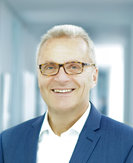EMC² Embedded Multi-Core systems for Mixed criticality applications in dynamic and changeable real-time environments
Goal
EMC² – ‘Embedded Multi-Core systems for Mixed Criticality applications in dynamic and changeable real-time environments’ is an ARTEMIS Joint Undertaking project in the Innovation Pilot Programme ‘Computing platforms for embedded systems’ (AIPP5).
Embedded systems are the key innovation driver to improve almost all mechatronic products with cheaper and even new functionalities. They support today’s information society as inter-system communication enabler. A major industrial challenge arises from the need to face cost efficient integration of different applications with different levels of safety and security on a single computing platform in an open context.
EMC² finds solutions for dynamic adaptability in open systems, provides handling of mixed criticality applications under real-time conditions, scalability and utmost flexibility, full scale deployment and management of integrated tool chains, through the entire lifecycle.
The objective of EMC² is to establish Multi-Core technology in all relevant Embedded Systems domains.
EMC² is a project of 99 partners of embedded industry and research from 19 European countries with an effort of about 800 person years and a total budget of about 100 million Euro.
OFFIS is leading Work Package 2 - Application Models and Design Tools for Mixed-Critical, Multi-Core Embedded Systems. In this work package the application developer entry level for mixed critical applications will be defined. The result will be a design flow starting with application level models including functional and extra-functional specifications down to a fully deployed system model to be executed on an embedded multi-core platform.
Safety-critical design methodologies start from an executable model, typically expressed in a block-diagram language and annotated with non-functional properties for verification and test purposes. This source model is then translated into simulation code, refined or abstracted models for formal verification and design-space exploration, and executable code to be embedded on the electronic controller. Code generators for the safety-critical applications will be certified, traceable, statically analyzable using formal methods, and allow for complete code reviews. EMC² will build on the well-established, rigorous system design and automated flows from the avionics industry, extending it towards dynamic, heterogeneous, compute-intensive, and mixed-critical systems. Putting safety and modularity at the core, the tools will strive to preserve the ideal of a single-source executable model, amenable to formal verification, testing, static analysis of functional and non-functional properties, efficient code generation and platform integration with runtime monitoring.
The complexity of system architectures targeted by this project demands for automated methods allowing finding optimized solutions of resource usage while accounting for the above design aspects (safety and performance). Particularly, the safety aspect requires that interferences between different functions allocated to the same computing resources are provable bounded, which is inevitable for example with respect to certification.
EMC2 aims at novel automated exploration methods that shall provide solutions to the following problems:
Supporting an optimized allocation of a system's functionality to the target hardware architecture with respect to performance.
Ensuring bounded interferences between different components in mixed-critical settings, including functional and non-functional properties of these components.
Support for both single and multi-core processing units.
For further information click www.artemis-emc2.eu
Internal Leader
Scientific Director
Philipp Ittershagen and Kim Grüttner and Wolfgang Nebel; Workshop on Software and Compilers for Embedded Systems (SCOPES'16); 05 / 2016
Werner Weber; Alfred Hoess; Frank Oppenheimer; Bernd Koppenhöfer; Bastijn Vissers and Bjorn Nordmoen; Proceedings of the Euromicro Conference on Digital System Design (DSD); 08 / 2015
Sören Schreiner and Ralph Görgen and Kim Grüttner and Wolfgang Nebel; 2016 International Conference on Embedded Computer Systems: Architectures, Modeling, and Simulation (SAMOS); 07 / 2016
Henning Schlender and Sören Schreiner and Malte Metzdorf and Kim Grüttner and Wolfgang Nebel; Proceedings of the 2015 Workshop on Embedded and Cyber-Physical Systems Education (WESE); 10 / 2015
Philipp Ittershagen and Kim Grüttner and Wolfgang Nebel; Proceedings of the 2015 Forum on Specification and Design Languages, FDL 2015, Barcelona, Spain, September 14-16, 2015; 09 / 2015
Philipp Ittershagen and Philipp A. Hartmann and Kim Grüttner and Wolfgang Nebel; 7th Workshop on Rapid Simulation and Performance Evaluation: Methods and Tools (RAPIDO); 01 / 2015
Sören Schreiner and Maher Fakih and Kim Grüttner and Wolfgang Nebel and Duncan Graham and Salvador Peiro Frasquet; 20th Euromicro Conference on Digital System Design, DSD 2017, Vienna, Austria, August 30 - September 1, 2017; 2017
Philipp Ittershagen and Kim Grüttner and Wolfgang Nebel; ACM Transactions on Design Automation of Electronic Systems (TODAES); 05 / 2018
Philipp Ittershagen; 2018
www.integrasys-sa.com
www.ltu.se
www.kth.se
www.ericsson.com
www.chalmers.se
www.iti.es
https://www.se.com/site/home/index.cfm/e
www.sevensols.com
www.visuresolutions.com
www.ixion.es
www.hi-iberia.es
www.tecnalia.com
www.acorde.com
www.inescporto.pt
www.criticalsoftware.com
www.isep.ipp.pt
www.simula.no
www.uio.no
www.fornebuconsulting.com
www.mbda-systems.com
www.rtu.lv/de
www.ensilica.com
systonomy.com
www.bristol.ac.uk
www.manchester.ac.uk
www.sundance.com
www.tomtom.com
www.technolution.eu
www.vectorfabrics.com
www.di.univaq.it
www.tno.nl
www.tue.nl
www.healthcare.philips.com/nl_nl
www.nxp.com
www.imec.be
www.alten.com
www.arccore.com
www.abb.de
www.volvo.com
www.tu-dortmund.de
www.blueice.be
www.thales-transportservices.com
www.frequentis.com
www.ait.ac.at
vif.tugraz.at
www.tuwien.ac.at
www.tttech.com
www.avl.com
www.sysgo.com
www.uni-kl.de
www.vutbr.cz
www.ida.ing.tu-bs.de
www.siemens.com/entry/de/de
www.iese.fraunhofer.de
evision-systems.de
www.elektrobit.com
www.eads.com
denso-europe.com
www.bmw.de
www.aicas.com
www.utrc.utc.com
www.polito.it
www.thalesgroup.com/Markets/Space/Related_Activities/Thales_Alenia_Space
www.unige.it
www.consorzio-cini.it
www.de.selex-es.com
www.cea.fr
www.dtu.dk
www.crf.it
www.aleniaaermacchi.it
www.lero.ie
www.infineon.com
www.hua.gr
www.systematic-paris-region.org/en
www.silkan.com
www.rockwellcollins.com/Worldwide/Europe/France.aspx
www.magillem.com
www.danfoss.com
www.utia.cas.cz
www.ima.cz
www.freescale.com
Contact
Duration
End: 29.06.2017
Website of project
Source of funding


FKZ: 01IS14002R


